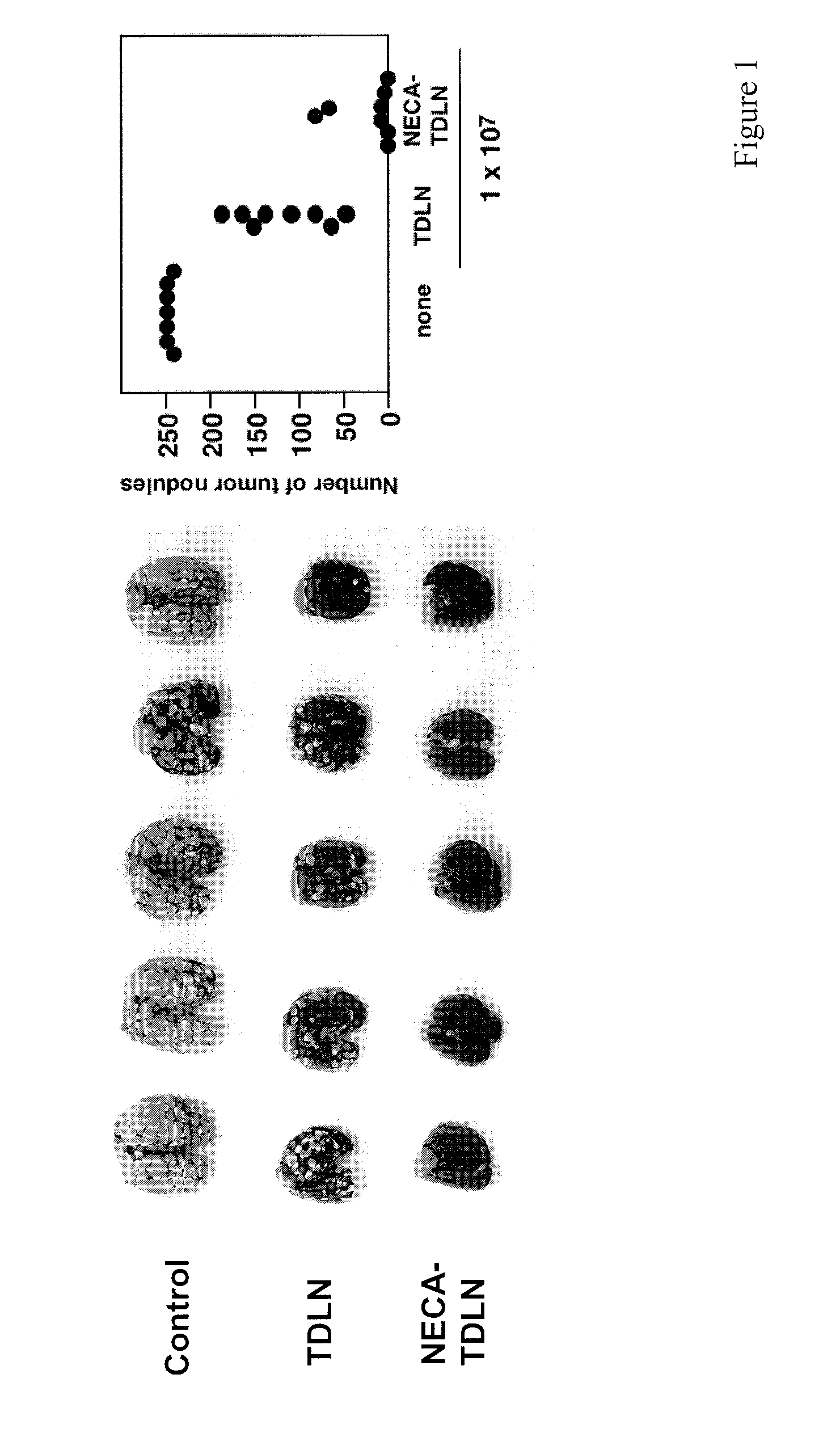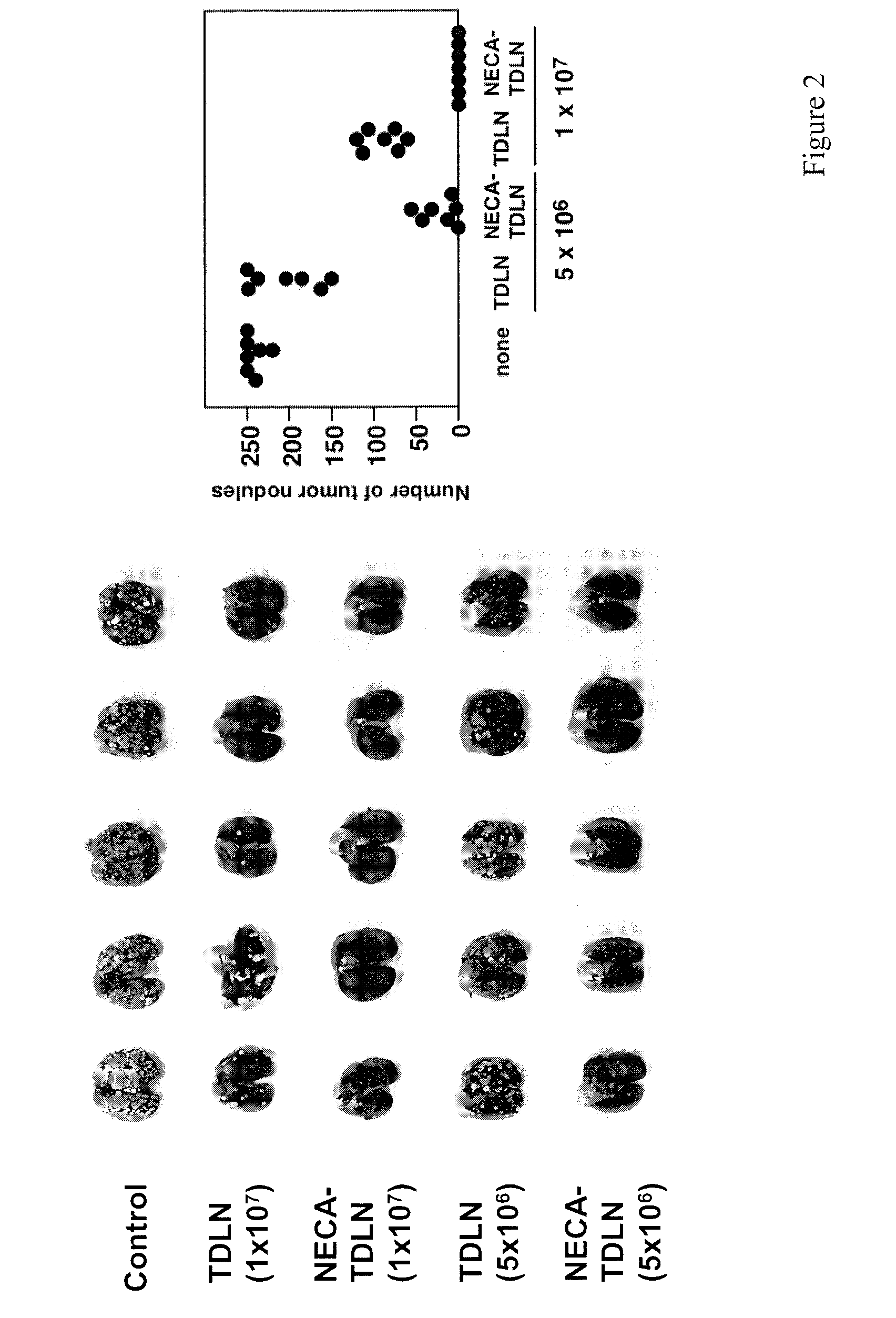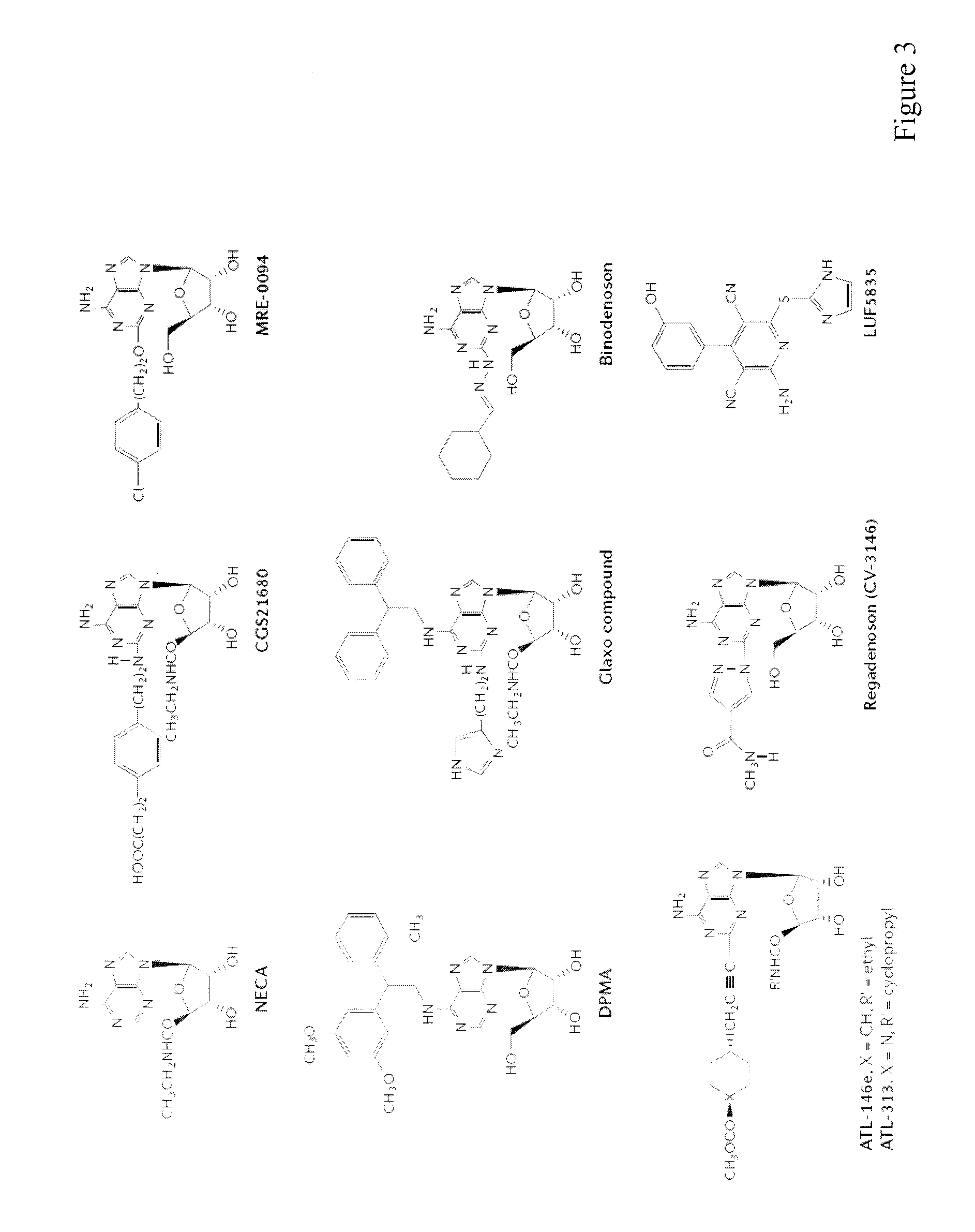Method of preparing adenosine-resistant anti-tumor T lymphocytes for adoptive immunotherapy
a technology of adoptive immunotherapy, which is applied in the field of preparing adenosine-resistant antitumor t lymphocytes for adoptive immunotherapy, can solve the problems of often failing to adoptive immunotherapy for diseases such as cancer and infectious diseases
- Summary
- Abstract
- Description
- Claims
- Application Information
AI Technical Summary
Benefits of technology
Problems solved by technology
Method used
Image
Examples
example 1
7.1 Example 1
[0241]Tumors use various means to protect themselves from the anti-tumor activities of immune system. One of the significant self-protective mechanisms is extracellular adenosine in tumor microenvironment, which inactivates anti-tumor effector T cells via signaling through A2A adenosine receptors (A2AR). Indeed, the lack of A2AR signaling led to augmented inflammatory responses and to enhanced tumor rejection. Anti-tumor T cells that are resistant to adenosine-mediated immunosuppression will be of significant benefit to improve the outcome of tumor adoptive immunotherapy.
[0242]The induction of cytotoxic T lymphocytes (CTL) in the presence of an adenosine receptor agonist, NECA, was studied. The CTL expanded in the presence of NECA were found to produce much less cAMP than normal CTL in response to adenosine receptor agonists. Furthermore, functional assays including cytokine production and cytotoxicity assay demonstrated that expansion of CTL with NECA made the CTL resi...
example 2
7.2 Example 2
[0246]The increased levels of extracellular adenosine in inflamed tissues down-regulate activated immune cells via A2A adenosine receptor. This A2A adenosine receptor-mediated immunosuppression is a disqualifying obstacle in cancer immunotherapy since it protects cancerous tissues from adoptively transferred anti-tumor T cells. The aim of this study was to test whether the negative selection of T cells will produce T cells that are resistant to inhibition by extracellular adenosine.
[0247]Experimental Approach:
[0248]Cytotoxic T lymphocytes (CTL) were developed by mixed lymphocyte culture in the presence or absence of adenosine receptor agonist 5′-N-ethylcarboxamidoadenosine (NECA). The sensitivity of CTL to adenosine analogs was characterized by cAMP induction, interferon-γ production and cytotoxicity.
[0249]Key Results:
[0250]CTL which could proliferate even in the presence of NECA were less susceptible to inhibition by A2A adenosine receptor agonists as shown by much sma...
PUM
| Property | Measurement | Unit |
|---|---|---|
| molecular weight | aaaaa | aaaaa |
| pH | aaaaa | aaaaa |
| pH | aaaaa | aaaaa |
Abstract
Description
Claims
Application Information
 Login to View More
Login to View More - R&D
- Intellectual Property
- Life Sciences
- Materials
- Tech Scout
- Unparalleled Data Quality
- Higher Quality Content
- 60% Fewer Hallucinations
Browse by: Latest US Patents, China's latest patents, Technical Efficacy Thesaurus, Application Domain, Technology Topic, Popular Technical Reports.
© 2025 PatSnap. All rights reserved.Legal|Privacy policy|Modern Slavery Act Transparency Statement|Sitemap|About US| Contact US: help@patsnap.com



